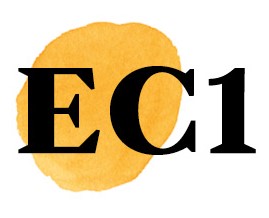Islington Council’s block heating policy has caused much consternation, as reported in EC1 Echo (Winter punishing in EC1 housing blocks where Islington Council has cut hours of heating). Here, one EC1 estate resident, who wishes to remain anonymous, issues a cri de cœur

“The heating situation this winter has been a failure by the council. No private landlord would dare attempt it but Islington Council can rest easy, fully aware that the majority of residents on the communal estates are unlikely to be able to afford legal representation.
Last March, Islington Council applied to the Government for permission to charge the maximum legally in council tax. This was months before the cost of living crisis. Then they raised the utility charges – heating, hot water and other services such as estate cleaning – as they do every year in April. The residents on the estates have no choice: they cannot install their own boilers so they have to pay the council for heating and hot water.
The council’s heating season starts in September and ends in May. Residents pay for it all year round although they get six months worth. The council claims it is helping tenants and leaseholders to spread the cost.
This winter, with no warning or consultation, the council cut another six weeks off the heating season. It should have begun on September 15, but on September 13 residents received an undated letter telling them that the heating would not be coming on for another month. The council ignored all attempts to reach them. Then, for over a month, the hot water was switched off between midnight and 7am, on at least one estate housing around 800 people.
Repeated attempts to talk to the council have been in vain, with urgent emails from TMOs unanswered. Then a letter, authored by a new body set up by IBC, Estate Champions, informed the residents that the utilities charges were going up again, for the second time in six months, by more than double. Heaping insult onto injury, the heating would also be switched off three times daily: in the morning, the afternoon, and at night.
The council claim to aim to cater to “most” of the residents. But on one estate alone, this writer spoke to ailing residents including an 80-year-old woman with cancer and a family of four with a child of 11 and the father in his 40s, both ill. The stressed mother was close to tears as she asked: ‘How can the council keep doing this to us?’
It turns out that the council has been having a lot of problems with its plan. As the boiler systems were not designed to be turned on and off several times daily, many have broken down. The council’s solution was to turn the heating down to its lowest point and still be on. When IBC turns the heating down or off, people who need warm homes get out their fan heaters.
Then GEM Environmental Building Services, the heating and engineering company which has the account with Islington Council, has to attend the estates repeatedly, sometimes taking days to get the heating working again. No compensation is liable until the heating is down for three consecutive days so the system can break down on a Friday and not be fixed until the following Tuesday, but tenants still have to pay on top of the extra cost of warming their homes with alternative sources.
Christmas was a gloomy affair as many couldn’t afford gifts and bills. No wonder the people of EC1 are beside themselves with worry and anger.”










